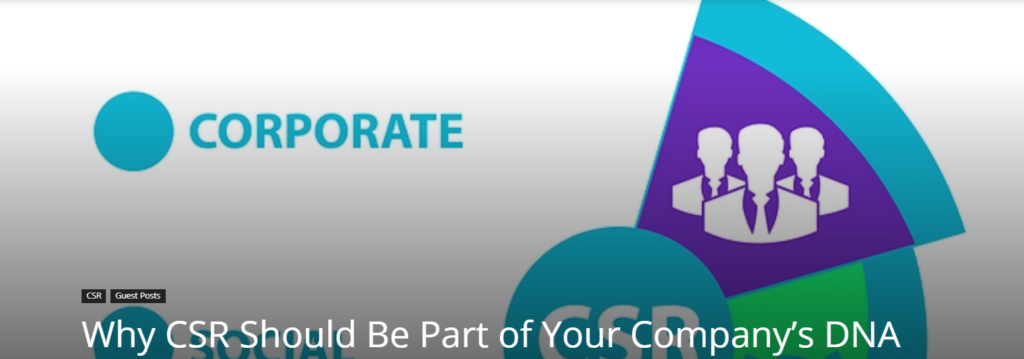As food manufacturing executives, we have an obligation that extends well beyond the end users of our product. Corporate Social Responsibility (CSR) has become a buzz word for the past few years, but how can we make what we do even more meaningful to our customers, employees, the communities we call home, and the environment we all share?
It’s no small task to address the disparate audiences that fall under CSR initiatives while trying to conduct daily business, but studies have shown that consumers increasingly direct their buying decisions on how well the company resonates with their personal social values. Pre-pandemic surveys from Clutch have acknowledged that the strongest attributes of a company are: 1. Environmentally friendly business practices, 2. Social responsibility and 3. Giving back to local communities.
The Clutch surveys also noted that when companies practice CSR and communicate their actions to customers, price becomes less of a priority. On the employee side, top talent seeks an environment that speaks to their own core values and is open, honest and transparent. Inc. reported that Millennials will make up 75% of the workforce by 2025, and The Cone Communications Millennial Study highlighted what we’ve been hearing for years – 64% of this generation said they wouldn’t accept a job if their employer didn’t have a strong CSR policy, and 83% said they would be more loyal to a company that helps them contribute to social and environmental causes.
Some areas of focus to consider as we journey to become more socially responsible corporate citizens include:
Packaging – Can you improve your packaging to reduce waste or improve recyclability? We use BPA-free plastic bottles on our production lines and over the years, have made several improvements including the purchase of our own bottle blowing machine to eliminate waste and save energy. We are consistently looking for ways to reduce our carbon footprint and two years ago, launched a friendlier alternative to plastic bottles. Our Bag in Box concept in a biodegradable cardboard box with a light plastic insert reduces plastic waste by 65% compared to comparable HDPE plastic bottles, and when we launched the new product that was one of the selling points for our sales team.
Plant – Are there areas in your manufacturing facility that can be reconfigured, remodeled or expanded to include green products or processes? Catania Oils was recently approved to construct a 51,000 square foot addition our facility and we have spent considerable time on identifying green initiatives to incorporate into our construction planning including:
- 100% of the asphalt being removed from our parking lot to prep for construction is being recycled.
- Some of the construction materials we will use for the expansion include a mixture of cement and recycled materials.
- We will over-insulate to reduce energy requirements needed for temperature control.
- All rainwater runoff will be collected and redirected to our town’s stormwater treatment system. Our plant backs up to a wetland area and excessive runoff would damage the ecosystem.
- All lighting will be high-efficiency LED to reduce energy consumption by up to 80%
- The roof is designed to be weight-bearing so that it can carry a load of solar panels
- Grounds will be replanted with native tree cultivars wherever possible.
People – Are you engaging your workforce beyond the scope of their jobs? Employee engagement is more than lip service. Employees want to feel they have a meaningful voice when it comes to operations that extend beyond their jobs. At Catania Oils, they do. We’ve shared our triumphs and frustrations with our teams and asked them to offer ideas and solutions for some of the more difficult problems we’ve faced. An example was during the height of the COVID pandemic. For several months, hand sanitizer (like toilet paper) was impossible to source. We realized that we had talented chemists and science geeks on staff and held a contest where employees formed teams to compete to create the best sanitizer product. The winning product kept us clean and safe until we could get a shipment of sanitizer stations into our facility. Sometimes, all they needed was gratitude. Understanding how difficult the pandemic was on our employees’ families, we provided catered dinners for them to bring home and enjoy, and at Christmas everyone received an 8lb roast for their holiday table.
Every day, our trucks and freight cars pass through town as we conduct business. How does what we do impact the residents of our community? What can we do to improve their quality of life as a responsible company? We ask those questions both in the office and out in the community and you should too. In addition to keeping our ears and doors open to community members who have a question or concern, we also want to ensure that we do what we can to help people in our neighborhood. Over the years, we have donated thousands of hours and resources to our local food pantry which helped even more residents last year and have formed work groups to help clean and maintain our town’s community garden.
These days, it’s even more difficult to find employees to fill open positions and we want to ensure that we are doing everything in our power to attract the right people for the right reasons. Infusing CSR into your company’s DNA will increase its appeal to customers, employees, and your community.
Joseph Basile is President of Catania Oils, the Northeast’s leading processor and packager of plant-based oils.
Article Credit: foodindustryexecutive
